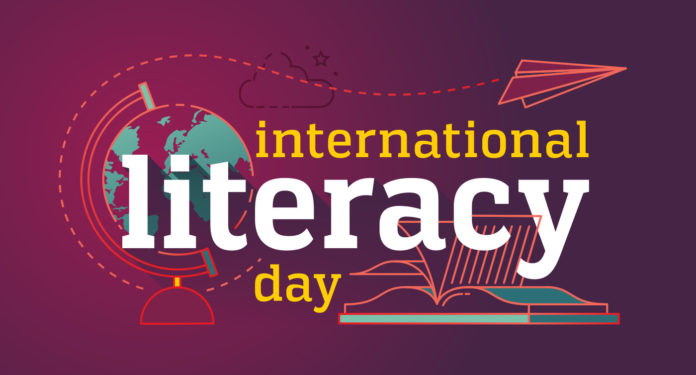
As the world observes International Literacy Day, the Ghana National Education Campaign Coalition‘s (GNECC) has called on government to take concrete measures to address literacy challenges in the country, particularly in the northern regions.
International Literacy Day (ILD) is a global event celebrated annually since 1967 to emphasize the fundamental importance of literacy as a basic human right and a catalyst for sustainable development.
Despite substantial progress worldwide, literacy challenges persist, with 763 million people lacking basic literacy skills as of 2020. Factors such as the COVID-19 pandemic, climate change, and conflicts have exacerbated these challenges.
A report from the 2021 Population and Housing Census conducted by the Ghana Statistical Service revealed that the literacy rate in the country stands at 69.8 percent.
Additionally, there is a significant disparity in school attendance, with the proportion of the population aged three and older who have never attended school ranging from nine percent in Greater Accra to 57.4 percent in Savannah.
Based on this backdrop, the GNECC has put forward a series of recommendations, including a national policy to help bridge the literacy gap, with a particular focus on the northern regions.
GNECC has proposed that, the government develop a comprehensive national literacy policy that outlines strategies, goals, and targets for improving literacy rates among basic school students.
This policy, it said should address issues like access to quality education, curriculum development, assessment methods, and the integration of technology in literacy instruction.
GNECC has also called for inclusive education to ensure that children with disabilities or special needs have equal access to quality literacy instruction, the government should promote inclusive education.
This, it said can be achieved by providing specialized resources, assistive technologies, and trained teachers in inclusive classrooms.
GNECC has emphasised the importance of technology in literacy instruction and recommends providing schools with computers, tablets, internet connectivity, and educational software. Technology can enhance student engagement, provide personalized learning experiences, and facilitate access to digital resources.
Furthermore, the Coalition has called for the establishment of support networks for teachers, including mentoring programs and teacher communities, which is another key recommendation from GNECC.
These networks can provide educators with opportunities to share best practices, collaborate, and receive guidance from experienced colleagues.
The Coalition hopes these recommendations will lead to concrete initiatives that empower all citizens with the essential tool of literacy, fostering a brighter and more equitable future for all.
This year’s International Literacy Day is themed “Promoting literacy for a world in transition: Building the foundation for sustainable and peaceful societies.”
It serves as an opportunity to accelerate progress toward achieving Sustainable Development Goal 4 (SDG4) on education. Literacy is seen as a cornerstone in building more inclusive, peaceful, just, and sustainable societies, motivating individuals to acquire, use, and further develop their literacy and numeracy skills.
